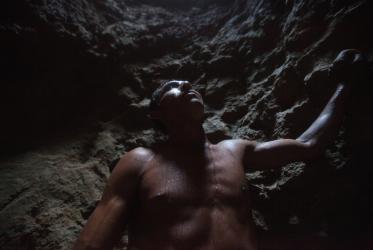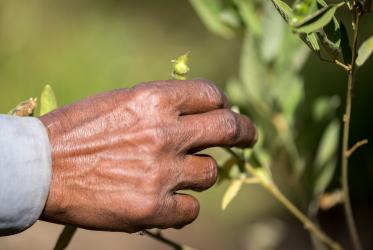Displaying 81 - 100 of 387
Seven Weeks for Water campaign pre-launched with prayer service
28 February 2022
Groundwater: a hidden treasure we need to protect, say EWN members
28 February 2022
“Bathroom ministry” for the homeless
14 December 2021
WCC invites webinar on ’Racism, Land and Food’
09 December 2021
Protecting Ethiopia’s church forests
27 October 2021
Climate crisis fuels existing water injustice
27 October 2021
EWN members stand in solidarity with water and land defenders
21 September 2021

















